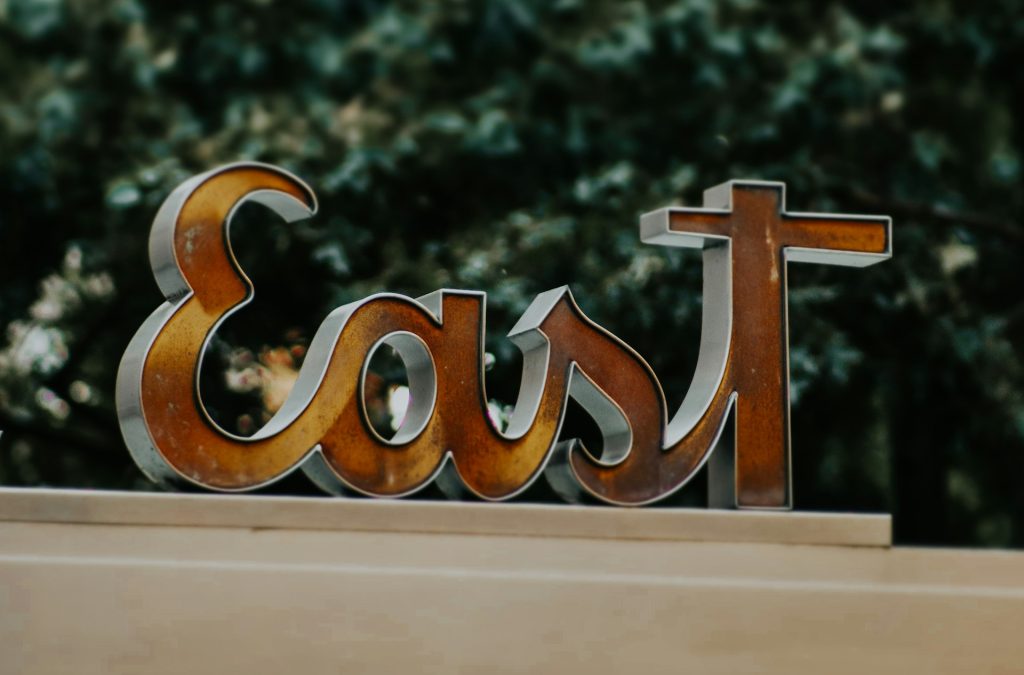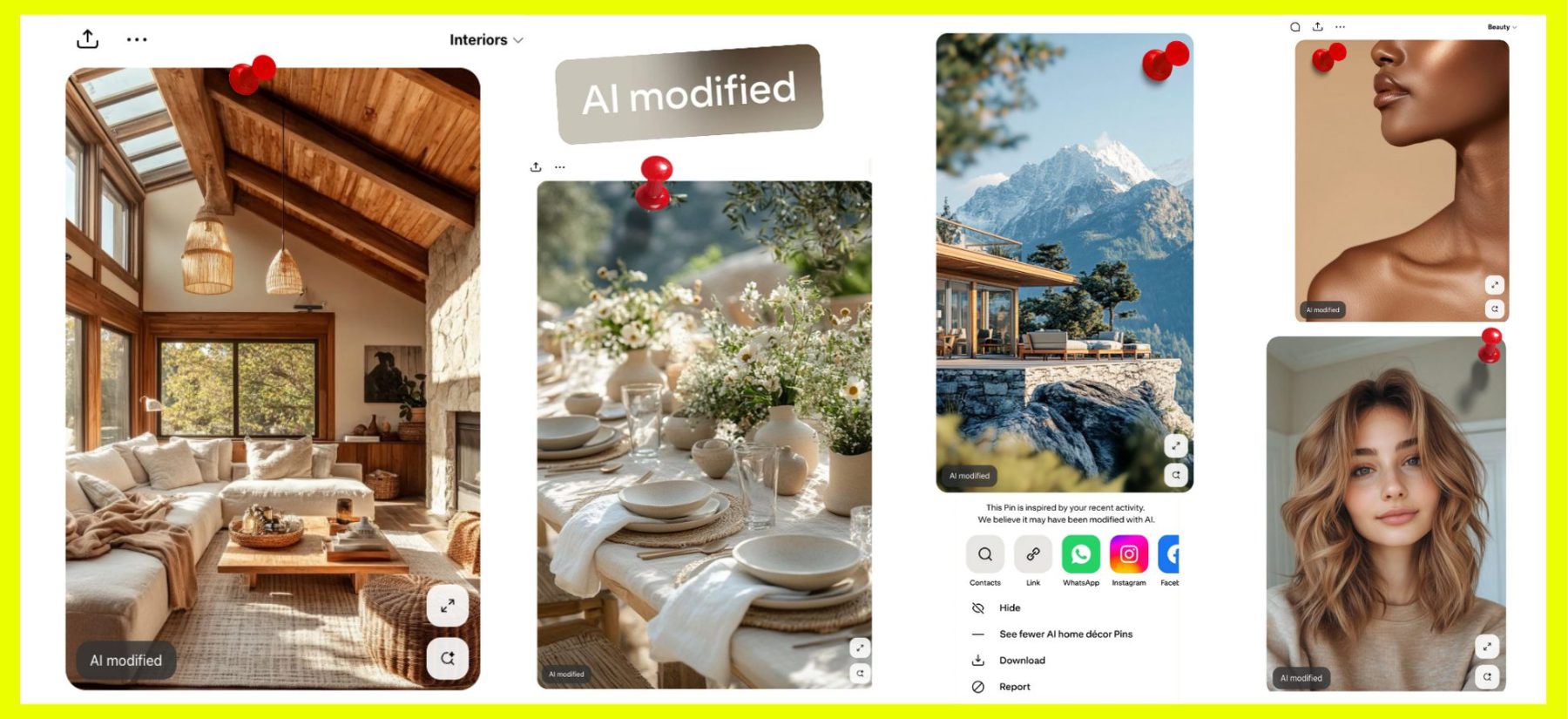
EAST Framework: How Behavioural Science Can Transform Marketing
November 13, 2025
5 Min Read
Behavioural science has a lot to teach us about why people buy. The EAST Framework offers a practical lens for…
Read ArticleMay 22, 2025
3 Min Read
Paid Social


Co-Founder and Managing Partner
Sign up to stay in touch and be the first to hear about our latest business, market and event updates.
Pinterest has launched new AI content labels to help users identify and manage AI-generated visuals on the platform, aiming to promote transparency and authenticity. Is this the future of transparency online or are Pinterest fighting a losing battle with Gen AI? Floresco co-founder Harriet explores this in more detail.
It’s no secret that the use of Generative AI (Gen AI) is accelerating rapidly. As consumers, we are increasingly encountering AI-generated content, often without realising it, in many aspects of our daily digital lives.
One space where this trend is especially visible is on social media. Even before Gen AI, platforms like Instagram and Pinterest were known for their aspirational aesthetics. Much of the content on these platforms was already curated, filtered, or staged to look picture-perfect. Now, with the introduction of AI tools, our feeds are drifting even further from authentic, real-life imagery.
This shift is particularly concerning in industries like beauty and fashion, where Gen AI is being used to create hyper-polished, entirely artificial models and images. These flawlessly generated images can promote unattainable beauty standards and distort perceptions of reality, especially among younger audiences. This is becoming increasingly dangerous, as the pressure to live up to AI-perfected body image and ideals is contributing to unrealistic body image and lifestyle aspirations. The line between inspiration and harm is blurred, and platforms must really tread carefully.
As AI-generated visuals become more advanced and lifelike, it raises some really important questions. Can we still tell what’s real? And should we be informed when content we’re viewing has been created or altered using AI?
After receiving feedback from its users requesting greater transparency around Gen AI, Pinterest has taken action. The company has now launched globally a new labelling system designed to flag AI-generated or AI-altered content. These “Gen AI labels” have been built to help users manage their experience and maintain trust in what they see on the platform.
The labelling system works by analysing metadata and applying classifiers developed by Pinterest. These tools aim to detect AI content across Pins, even when there are no obvious visual cues. Taking it one step further, Pinterest is preparing to test a feature that allows users to filter or “see less” of this type of labelled content, giving users more control over what is populating their feed.
Matt Madrigal, Pinterest’s Chief Technology Officer, shared,
“As people encounter AI-generated content on Pinterest, we are empowering our users to make more informed choices about the content they see. Gen AI content on Pinterest should enhance users’ ability to discover and act on their inspiration, and we are intentionally approaching this new landscape in a thoughtful way that benefits everyone on Pinterest.”
At Floresco, we provide advertising services across paid social channels like Pinterest where their AI labelling rollout is presenting both a challenge and an opportunity for brands and advertisers. On the one hand, it may push brands using AI-generated visuals to reconsider how this content is perceived by their audiences, especially if users begin to filter it out. On the other hand, transparent labelling may build greater trust. By clearly distinguishing between AI-created and authentic content, advertisers who are upfront about their use of AI may be better positioned to connect with audiences seeking authenticity.
Early feedback on this new feature has been mixed. Whilst Pinterest are clearly addressing a very real issue, some creators have expressed frustration over their original works being incorrectly flagged as AI-generated. These include, but are not limited to, artists uploading hand-drawn or painted work, photographers, and even sculptors, who are now having to appeal AI misclassifications in order to defend the authenticity of their own work.
Whilst it’s understandable that this tool is still evolving, Pinterest’s global rollout suggests this product should perhaps be more accurate by now. The company has introduced an appeals process to address any misclassifications, but it’s clear that striking the right balance between innovation and accuracy remains a challenge.
As Gen AI technology continues to evolve, a few lingering questions remain – will platforms even be able to reliably tell the difference between original and AI-generated content? Is Pinterest paving the way for greater transparency and authenticity online, or are they fighting an uphill battle against an increasingly indistinguishable digital future?
If you want to find a paid media agency to help you leverage the latest trends and tech across paid social to drive business growth, we’d love to talk.